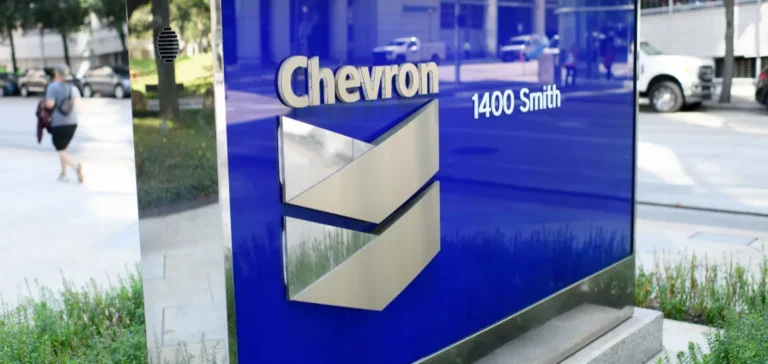Oil group Chevron Corporation reported a net profit of $3.54bn in the third quarter, down 21.13% year-on-year. Revenue fell 1.86% to $49.73bn, yet surpassed analysts’ expectations of $47.23bn. Earnings per share, a key indicator for investors, reached $1.85, outperforming the consensus of $1.71, though down from $2.51 a year earlier.
Impact of Hess Corporation integration on results
The decline in crude oil prices weighed on the group’s revenue, but Chevron mitigated this through one-off items linked to the acquisition of producer Hess Corporation. Finalised for approximately $60bn including debt, the transaction led to a net loss of $235mn related to severance and other restructuring costs. These expenses were partially offset by favourable exchange rate effects and a $147mn revaluation of Hess shares.
Initially scheduled over a year earlier, the acquisition had been delayed by a legal dispute with ExxonMobil. The deal gives Chevron access to new fields and expands its strategic footprint in Southeast Asia, where it has since sold assets located between Malaysia and Thailand.
Significant increase in global production
Chevron’s global output rose 21% year-on-year, driven by a 27% increase in the United States. This performance reflects the integration of Hess assets and the ramp-up of existing projects in the Permian Basin and offshore operations. The operational gains contributed to the group’s ability to sustain shareholder returns.
During the quarter, Chevron returned $6bn to shareholders, including $2.6bn in share buybacks and $3.4bn in dividends. Over the past three years, total distributions have exceeded $78bn, underlining a consistent capital return policy despite market volatility.
Market response and outlook
Before the New York Stock Exchange opened, Chevron shares rose 0.49% in electronic trading. This modest increase reflects the group’s capacity to meet expectations in a context of pressure on hydrocarbon prices. Management did not provide financial guidance for year-end but stated it is continuing to integrate Hess operations, targeting new synergies across its subsidiaries.
Mike Wirth, Chairman and Chief Executive Officer of Chevron, stated that “the integration of Hess is progressing well, generating synergies across all our operations.”






















